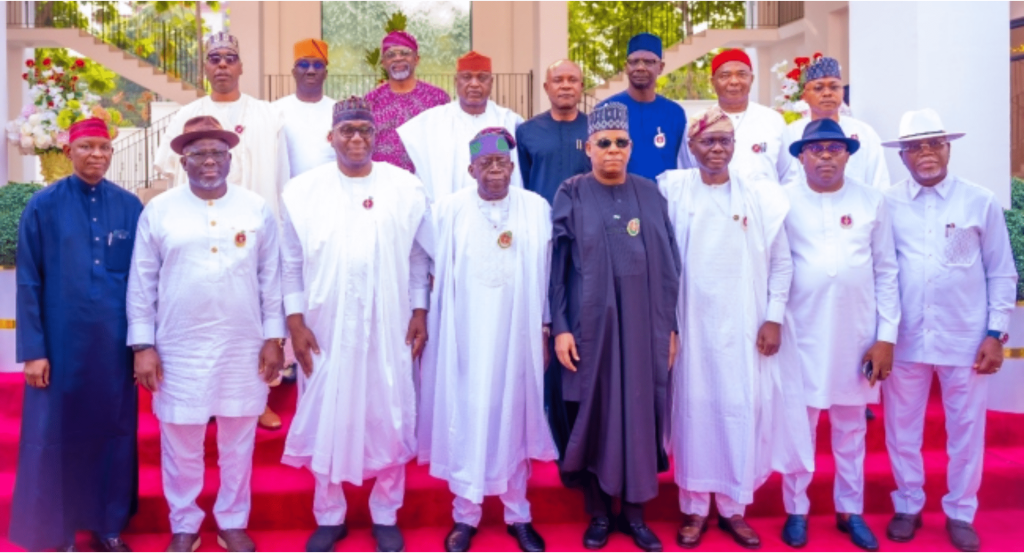President Bola Ahmed Tinubu has commended state governors for their unwavering support in advancing critical tax reform bills. The President described their cooperation as a significant step toward simplifying Nigeria’s tax system and driving sustainable economic growth.
Speaking at a stakeholders’ meeting in Abuja, Tinubu emphasized the importance of the proposed tax reforms, which aim to address inefficiencies, broaden the tax base, and enhance revenue generation. He noted that the reforms align with his administration’s commitment to creating a business-friendly environment and ensuring fiscal discipline.
The tax reform bills, which are part of recommendations from the Presidential Committee on Fiscal Policy and Tax Reforms chaired by Taiwo Oyedele, propose significant changes to Nigeria’s tax structure. These include eliminating multiple taxation, streamlining tax administration, and fostering compliance among businesses and individuals.
In his address, Tinubu highlighted the critical role of state governments in achieving these reforms. He expressed gratitude for their proactive involvement in shaping the bills and assured stakeholders that their enactment would result in tangible benefits for Nigerians. “This collaborative effort marks a turning point in our pursuit of a fair, efficient, and growth-oriented tax system,” Tinubu said.
Oyedele, the committee chairman, also reiterated the need for an expedited legislative process to ensure the early enactment of the reforms. He stressed that the bills are designed to reduce the tax burden on low-income earners while promoting equity and transparency in revenue collection. According to him, these measures will create a conducive environment for investments and support Nigeria’s economic diversification agenda.
The proposed reforms have garnered praise from economic analysts, who see them as vital to addressing Nigeria’s fiscal challenges. By fostering accountability and reducing revenue leakages, the reforms aim to bolster public confidence in the government’s ability to manage resources effectively.
However, some stakeholders have raised concerns about potential resistance from certain quarters, particularly entities benefiting from the current tax complexities. To address these concerns, the government has pledged to engage extensively with all parties to ensure a smooth transition to the new system.
As Nigeria prepares for the legislative process, the successful enactment and implementation of these reforms are expected to enhance revenue mobilization, reduce dependency on oil revenues, and support critical infrastructure development. Tinubu urged all Nigerians to embrace the reforms, describing them as a foundation for sustainable economic prosperity.



















